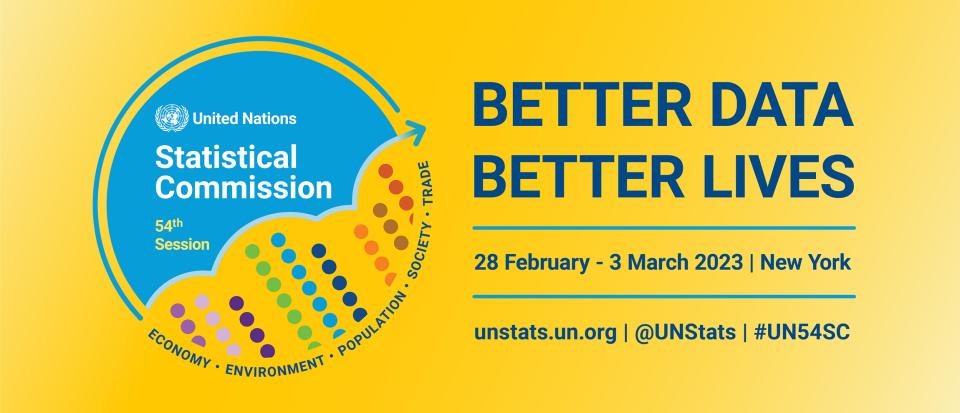Looking Forward to the 54th UN Statistical Commission

After two years of a virtual commission, it is planned that the 54th session of the United Nations Statistical Commission (UNSC) will be held in person in New York from 28 February to 3 March 2023. The Commission provides an opportunity for the UN Committee of Experts on Environmental-Economic Accounting (UNCEEA) to update the UNSC, the highest body of the global statistical system, on its recent achievements and plans for the future.
Two highlights will surround the UNCEEA’s work on biodiversity and climate change. With the long-awaited COP-15 wrapping up in Montreal this week, attention will inevitably turn to implementing the post-2020 global biodiversity framework and achieving the ambitious goals and targets within. The Committee has already began contributing to the monitoring framework, which includes headline indicators derived from the SEEA. The Committee plans to participate in an expert group on the monitoring framework established by the COP, in order to promote the use of common standards related to data and methods, particularly where the SEEA is relevant. More broadly, the UNSC will discuss how national statistical offices can be better engaged in the new biodiversity framework.
With regards to climate change, the Committee has recently started working on the G20 Data Gaps Initiative (DGI), which calls for the IMF, in close cooperation with partners, to improve the data availability and provision of climate change data (among others). Half of the 14 recommendations of the DGI are on climate change, and the SEEA provides the methodological basis for many of these recommendations. The Committee, particularly the working groups on coordination, methodological development and global databases, will be helping G20 countries close these data gaps through the compilation of SEEA accounts.
The Committee has also highlighted its methodological work in its report to the UNSC. The Committee has engaged heavily in the update of the 2008 System of National Accounts, as well as the many updates to core statistical classifications, such as the International Standard Industrial Classification of All Economic Activities (ISIC), Central Product Classification (CPC) and Standard International Energy Product Classification (SIEC). For the SEEA Ecosystem Accounting, methodological work has progressed through two working groups on forest ecosystem accounts and ocean accounting. The Committee, through the working group on capacity building, has also been working to help countries jumpstart ecosystem accounting, in line the SEEA Ecosystem Accounting Implementation Strategy.
Finally, the UNSC will also be asked to weigh in on the Committee’s involvement in business accounting. The Committee’s working group on business accounting aims to build connections between private sector natural capital accounting methodologies and standards with the SEEA, which should result in greater exchange and use of high quality data on the environment between the public and private sectors in the future. For instance, over the past year the working group, through the UN Statistics Division, has engaged with the Task Force on Nature-Related Financial Disclosures (TNFD) to align many of the TNFD definitions with the SEEA.
The report of the Committee to the UNSC is now available in all official UN languages: https://digitallibrary.un.org/record/4000151?ln=en
